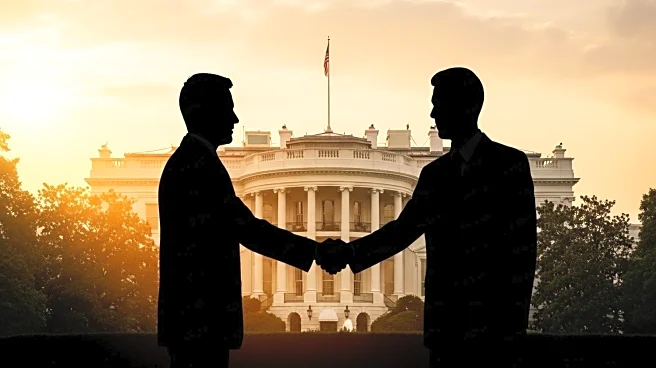What's Happening?
Top congressional leaders are scheduled to meet with President Trump at the White House to discuss measures to prevent a government shutdown. The meeting involves Senate Majority Leader John Thune, Senate Minority Leader Chuck Schumer, House Speaker Mike Johnson, and House Minority Leader Hakeem Jeffries. The discussion is centered around a short-term stopgap bill that aims to fund the government through November 21. Previously, House Republicans passed a continuing resolution, but it failed in the Senate due to Democratic opposition. The meeting follows President Trump's cancellation of a prior meeting with Democratic leaders, citing unproductive demands. Democrats are advocating for permanent tax cuts from the Affordable Care Act, while Republicans prioritize government funding before negotiating subsidies.
Why It's Important?
The potential government shutdown poses significant risks to federal operations and services. Essential services like Social Security and Medicare would continue, but new applications could face delays. Nonessential services would be halted, affecting hundreds of thousands of federal workers who would go unpaid. The White House has instructed federal agencies to prepare for permanent layoffs, which Democrats criticize as intimidation tactics. If implemented, this could reduce the federal workforce even after the government reopens. The situation underscores the political tensions between Republicans and Democrats over fiscal policies and healthcare subsidies.
What's Next?
The Senate is expected to vote on the stopgap bill, but the outcome remains uncertain due to the need for bipartisan support. If the government shuts down, federal workers and services will be directly impacted, leading to potential public dissatisfaction and economic repercussions. The meeting at the White House is crucial for reaching a compromise to avoid these consequences. Stakeholders, including political leaders and federal employees, are closely monitoring the developments, hoping for a resolution that maintains government operations and addresses healthcare subsidy concerns.










